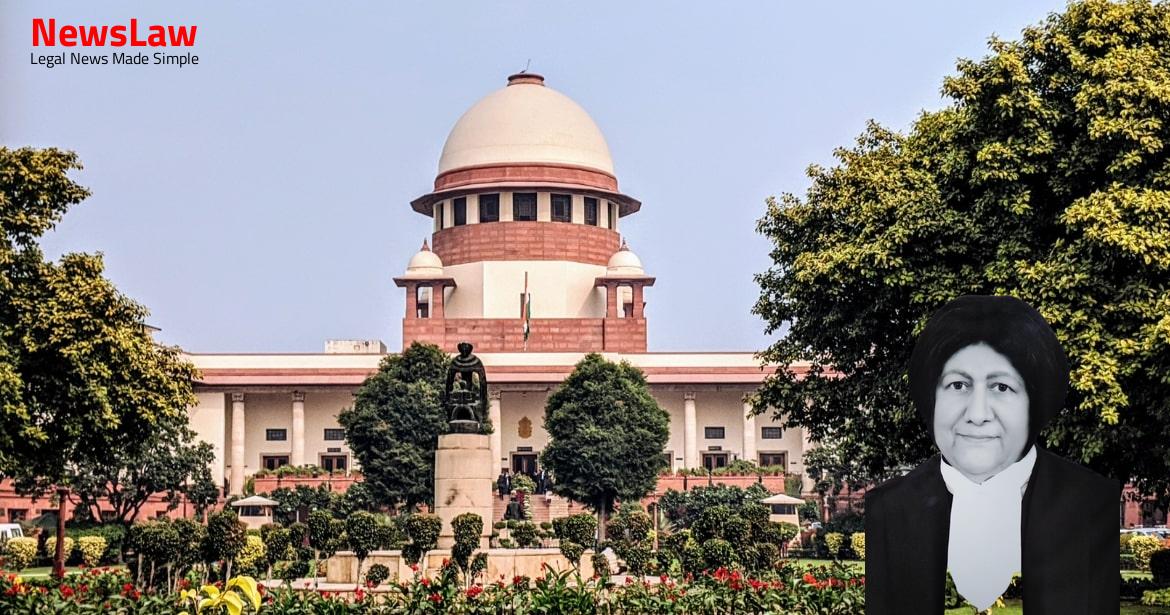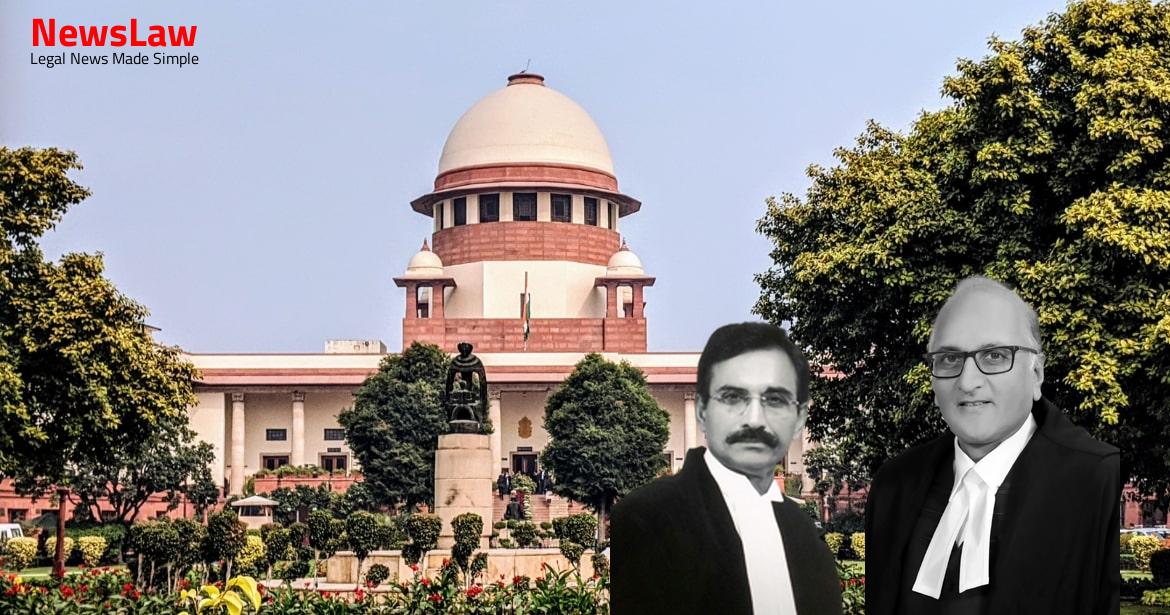The Court’s recent decision to quash notifications allowing exemptions under the Factories Act during the COVID-19 pandemic showcases a crucial legal analysis of ‘public emergency’ criteria. This ruling emphasizes the importance of upholding workers’ rights, ensuring fair compensation, and dignified working conditions. The court’s thorough examination of the provisions under the Factories Act sets a precedent for safeguarding labor welfare amidst challenging economic times. Let’s delve into the legal intricacies and implications of this landmark judgement.
Facts
- The State of Gujarat issued a notification on 17 April 2020 under Section 5 of the Factories Act to exempt factories from certain provisions regarding weekly hours, daily hours, rest intervals for adult workers.
- The aim was to provide relaxations for industrial and commercial activities from 20 April 2020 to 19 July 2020 due to financial stringency faced by industrial employers during the COVID-19 outbreak.
- This notification utilized powers under Section 5 of the Factories Act, 1948, exempting factories from fulfilling obligations towards their workmen.
- A second notification was issued on 20 July 2020 by the State of Gujarat as the lockdown continued to be extended, including on 14 April 2020.
Also Read: Analysis of High Courts’ Jurisdiction and Court Orders Under Article 142
Issue
- The question before the Court is whether the COVID-19 pandemic and the imposed lockdown constitute a public emergency under the Factories Act
- The central government imposed a lockdown to contain the spread of COVID-19
- The definition of public emergency as per the Factories Act is relevant to the interpretation of the situation
- The impact of the pandemic and lockdown on the functioning of factories and industries is an important consideration in this case
- Determining the existence of a public emergency in this context will have implications on the application of the Factories Act
Also Read: Electoral Malpractices in Mayor Election
Arguments
- The exercise of powers under Section 5 of the Factories Act is challenged as ultra vires the Factories Act.
- The Petitioners argue that the economic slowdown caused by the pandemic does not constitute a ‘public emergency’ as defined under Section 5 of the Factories Act.
- They contend that the notifications issued are a pretext to extract more work from workers without proper compensation.
- The Respondent’s justification of economic chaos is deemed insufficient to warrant the blanket exemption granted to all factories.
- The Petitioners assert that the situation does not pose a threat to the security of India or any part of its territory.
- They argue that the power under Section 5 can only be exercised upon the objective existence of the conditions prescribed, and that the Respondent has failed to demonstrate this.
- Respondent relies on the decision in Pfizer case to emphasize on enhancing industrial production during national emergencies.
- The Respondent argues that during national emergencies, all necessary efforts must be made to boost the industrial production of the nation.
Also Read: Balancing Power and Transparency: Electoral Bonds Struck Down, Disclosure Mandated
Analysis
- The COVID-19 pandemic has disturbed the social order of the country and threatened the even tempo of life in the State of Gujarat.
- Emergency measures were required to protect the existence and integrity of the State of Gujarat.
- Extreme financial exigencies have been caused in the State due to the pandemic.
- Three industrial accidents occurred in hazardous industries that reopened with a skeletal workforce after the lockdown.
- The notifications were issued under Section 5 of the Factories Act to ensure the maintenance of minimum production levels in factories.
- The situation must qualify as a ‘public emergency’ under Section 5 with specific criteria to be satisfied.
- The power to grant exemptions under Section 5 lies with the State Government.
- The notifications were not issued under Section 65(2) of the Factories Act for dealing with exceptional pressure of work.
- The existence of a grave emergency threatening the security of India must be demonstrated for a situation to qualify as a ‘public emergency’.
- The principle of proportionality is implicitly incorporated in the statutory provision under Section 5.
- The powers under Article 352 of the Constitution have been invoked thrice by the President to declare an emergency.
- The purpose of the notifications is to deal with the COVID-19 pandemic and ensure the core functions of the economy continue to operate.
- The notifications do not violate Section 59 of the Factories Act in terms of payment for overtime work.
- The State temporarily exempted factories and establishments from labour laws to overcome financial crisis and protect them.
- Precedent on ‘public emergency’ and ‘security of the state’ is referred to in the judgment.
- Section 5 of the Factories Act allows the State Government to exempt factories in a public emergency, except for Section 67.
- Article 355 of the Constitution does not contemplate a proclamation of emergency or interference in the functioning of elected state governments.
- Labour welfare is integral and upheld by the Constitution.
- Section 5 of the Factories Act and its exemptions need to be analyzed in the context of the Indian welfare State.
- The impugned notifications under Section 5 aim to boost industrial and commercial activities.
- The emergency powers must be exercised only in cases of extreme economic hardship threatening public order and security.
- The notifications exempt all factories without considering the nature of their products, which may lead to exploitation of workers during a pandemic.
- Exemptions under Section 65(2) should consider the essential nature of products, unlike the blanket exemptions seen in the notifications.
- The intent of the Factories Act is to ensure worker safety and dignity.
- Public emergency must be objectively demonstrated before emergency powers can be exercised.
- The explanation in the Act narrows down the definition of ‘public emergency’.
- The economic slowdown caused by the pandemic does not qualify as an ‘internal disturbance’ threatening state security.
- Subjective satisfaction is not a criterion for determining the existence of a public emergency.
- The Court emphasizes the importance of upholding the Directive Principles of State Policy.
- The notifications deviate significantly from the provisions of the Factories Act, especially Section 59 on overtime wages.
- Challenges posed by the pandemic should be addressed by state governments within the legal framework.
- The purpose of the notifications is to cope with economic slowdown, not overwhelming work pressure.
- Workers should be compensated fairly, especially in times of urgent need like a pandemic.
- The Court questions the necessity and legality of the exemptions granted to all factories under the impugned notifications.
- The social and economic welfare envisioned by the Constitution must be upheld in all circumstances.
- The explanation in the Act circumscribes the powers of emergency declaration.
- The historical context of the Factories Act underscores the importance of worker protection and dignity.
- The pandemic has led to a severe economic slowdown but does not constitute a public emergency threatening state security.
- The Parliamentary amendments to Article 352 are a result of past experiences, particularly excesses during the emergency and human rights violations.
- The Act is meant to protect labor welfare and combat public health crises like the current pandemic.
- The Sarkaria Commission recognized various situations as internal disturbances and the need for balance in such cases.
- The Act applies to establishments with more than 10 employees and focuses on regulating working hours.
- Provisions in the Act ensure fair compensation for overtime work, double the rate of wages, and prevent workers from contracting out of receiving such compensation.
- The Constitution envisions social and economic democracy and emphasizes the importance of fundamental rights and directive principles.
- The principle of proportionality is crucial in determining the validity of state actions that impinge on fundamental rights.
- Emergency powers should only be used to avert threats like external aggression or internal disturbances, not for other purposes like exploiting workers during a pandemic.
- The notifications exempting factories from certain provisions of the Act during the COVID-19 pandemic are criticized for denying humane working conditions and overtime wages, impacting workers’ rights to life and against forced labor.
- Exercising emergency powers must be based on grave emergencies threatening the security of the state.
- Article 352 outlines conditions for declaring an emergency, such as armed rebellion threatening India’s security.
- The pandemic and lockdown have disproportionately affected the working class, emphasizing the importance of dignified working conditions and fair compensation.
- The Factories Act aims to provide decent working conditions and dignified wages for workers.
- Judicial review is limited in matters of economic policy, but courts must ensure the protection of workers’ rights and dignity.
- The Factories Act does not allow for blanket exemptions for factories from complying with humane working conditions and adequate compensation for overtime.
- An ‘internal disturbance’ must pose a ‘grave emergency’ threatening the security of India in order to exempt factories from compliance with the Act.
- No factory or classes of factories can be exempted from provisions of the Factories Act unless a ‘public emergency’ as defined in Section 5 of the Act occurs.
Decision
- The writ petition is allowed and Notifications dated April 17, 2020, and July 20, 2020, issued by the Labour and Employment Department are quashed.
- Overtime wages to be paid to eligible workers as per Section 59 of the Factories Act since the issuance of the notifications.
- Direction given under Article 142 of the Constitution for complete justice.
- Pending applications disposed of.
Case Title: GUJARAT MAZDOOR SABHA Vs. THE STATE OF GUJARAT (2020 INSC 572)
Case Number: W.P.(C) No.-000708 / 2020



